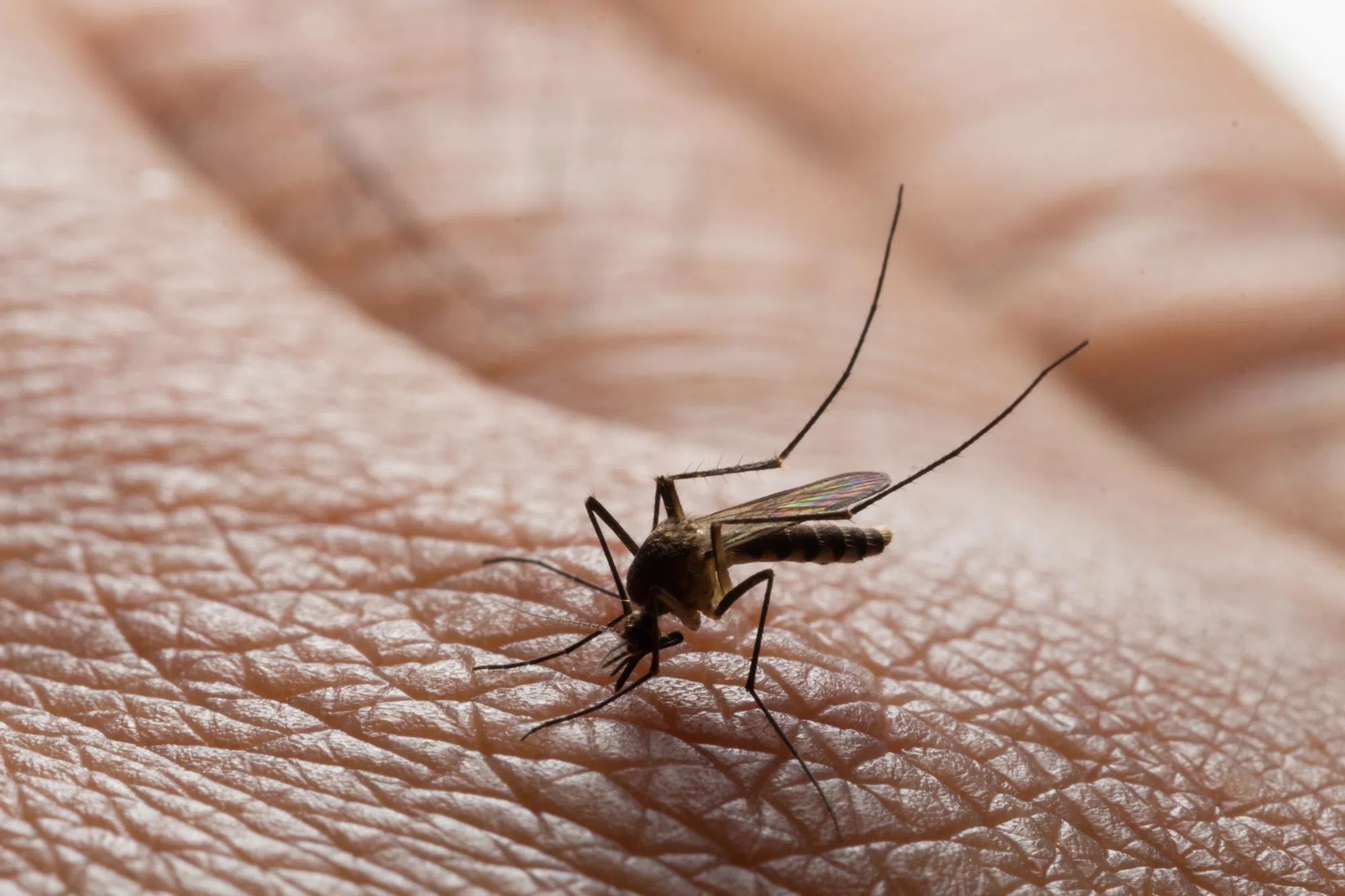Hastings Prince Edward Public Health says it has identified the presence of mosquitos carrying the West Nile Virus in the Belleville area.
This is the first pool of mosquitos to test positive for the virus this year.
WNv is an infection found in birds that gets carried by mosquitos that feed on the infected birds.
The virus can be spread to humans and animals through bites from the infected mosquitos.
Early symptoms include fever, muscle weakness, stiff neck, confusion, severe headache, sudden sensitivity to light, tremors, numbness, or vision loss.
It is noted that the majority of infected individuals will have mild symptoms or no symptoms at all.
Severe cases of WNv can cause inflammation of the brain known as encephalitis.
HPEPH says recent hot and rainy weather may have contributed to an increase in the local mosquito population and that the health unit will continue to monitor for WNv throughout the Quinte region until the end of August.
The health unit provided the following steps to prevent West Nile Virus.
- Wear light-coloured clothing and minimize exposed skin if you are out at dawn and dusk.
- Use an insect repellant containing DEET or Icaridin and follow manufacturer’s directions.
- Consider wearing permethrin-treated clothing.
- Remove any sources of standing water where mosquitoes can lay their eggs, including jars, discarded tires, clogged gutters, yard decorations, and stock tanks.
- Empty bird baths every other day and cover rain barrels with a tight-fitting fly screening.
- If you encounter a dead bird do not handle it with bare hands. Instead, use a shovel to dispose of it. If you must handle the bird, wear rubber gloves and wash hands well with soap and water after handling.
- Report dead birds to the Canadian Wildlife Health Cooperative.






